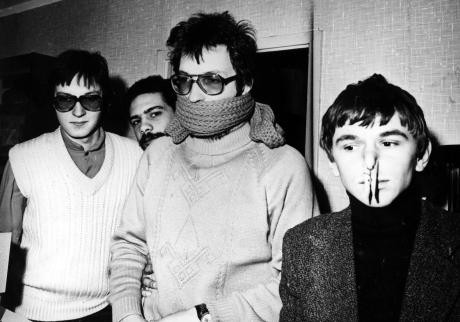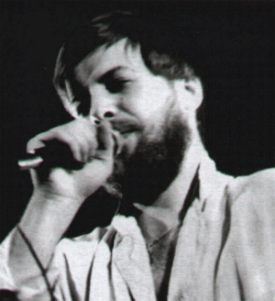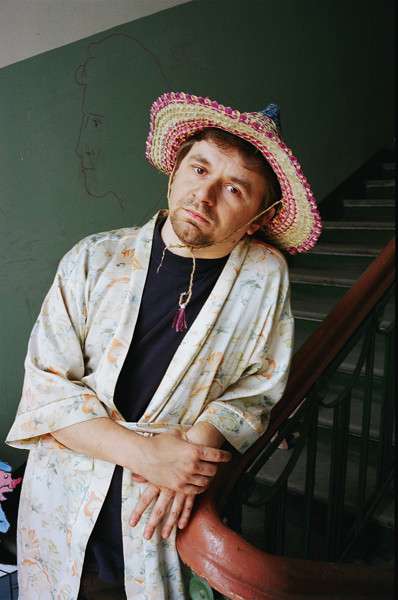
Мухомор
Band, RU, Moscow
Toadstools (Мухоморы) were a Moscow art-group, created in 1978. Their sole album Golden Disc, self-released in 1981-82, provoked interest in experimental and conceptual music among Soviet rockers, modern artists and melomaniacs, and became hugely influential for many other bands, including Bachyt-Kompot, Waterfall, Khui Zabei, DK, and, of course, Egor Letov's side-project Communism. Originally self-distributed in samizdat as a "magnet tape" (reel-to-reel) album, Golden Disc was officially released on compact cassette in 1997 by Otdelenie VYHOD label in Russian Rock Zoo series. In 2014, it was re-released on CD+DVD (full album and a collection of short films from 1978-1982). Aleksandr Kushnir reviewed the album in 100 Magnet Tape Albums of Soviet Rock book. Friends and classmates Sven Gundlach, brothers Vladimir and Sergey Mironenko, Aleksey Kamensky, and Konstantin Zvezdochetov established Toadstool group on 24th March 1978. They created a collaborative painting Indian Hunting Down Eagle and declared this day to be an International Day of Happening. Toadstool staged and filmed satirical buffoonery performances, organized avant-garde exhibitions, radical psychedelic happenings and performances, published humorous manifestos and open letters, including one to Margaret Thatcher concerning Falkland Islands situation. On the winter holidays in December 1980 – January 1981, Toadstools got together at Aleksey Kamensky's apartment and decided to record their best "compositions." Golden Disc is a post-modernistic avant-garde radio play, with artists reciting their highly provocative poems over a pre-recorded sound collage, trying to match the rhythm and tempo. The studio technology was defiantly primitive. On a consumer Rostov-101 tape recorder, they would put a performer's voice on one channel, and pre-mixed sound collage from reel tape on the other. The soundtrack included "best of all times" instrumentals and fragments – everything from Shocking Blue, ABBA and sound of Kremlin bells to Leonid Utyosov, Beethoven and Tchaikovsky symphonies, Arabian melodies, blues improvisations, and jazz standards. The album was initially distributed on DIY reel-to-reel tapes and presented as a "complex esoterically-theoretical avant-garde composition" in a small circle of Moscow underground artists, such as Ilya Kabakov, Andrei Monastyrski, and Dmitri Prigov. A regular audience seemed to enjoy a humorous and radical collage outside of a highbrow artistic concept. Rock music was under political repressions in USSR at the time, so without many events to attend, listeners liked this album as an alternative form of music-related verbal communication, as a surrogate for the live concert experience. Seva Novgorodsev broadcasted Golden Disc excerpts on his BBC radio-show. The growing popularity had drawn government attention, and Toadstool music was officially banned. KGB interrogated artists in 1984, and soon enough sent them out of Moscow for a compulsory military service. Since then, Toadstools were officially over. Most members of the legendary group continued working as painters and visual artists while Sven Gundlach founded The Central Russian Upland band.
Members
 | Свен Гундлах *1959 RU |
 | Алексей Каменский |
 | Константин Звездочетов *1958 RU |
 | Сергей Мироненко |
 | Владимир Мироненко |
